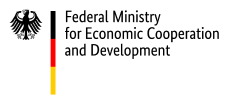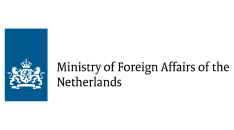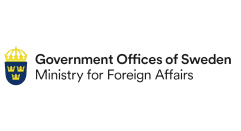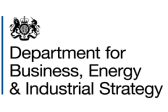Jordan
Member Since
MAR 2017
Partners Involved
European Commission, FAO, Germany (through GIZ and IKI), IFAD, ILO, IsDB, IRENA, Netherlands, Ricardo, UN Habitat, UNEP, UNDP, and the World Bank
Climate change cannot be addressed in isolation. No geographical region, no economic sector can protect itself from the impact of global threats, stressing Jordan's commitment to contribute to international efforts to counter the phenomenon. To achieve the future we seek, there must be comprehensive, collective, sustainable global action — action that gets results. Jordan pledges our continuing cooperation, for our own people’s future, and the future of our shared world."
His Majesty King Abdullah Ibn Al-Hussein of Jordan
Jordan submitted its first Nationally Determined Contribution (NDC) in November 2016, committing to reducing its greenhouse gas emissions by 14 percent by 2030. When Jordan joined the Partnership in March 2017, it asked for technical support to turn its pipeline of projects into bankable proposals and to align SDGs, development plans, and its NDC. Partnership support has helped it to revise its NDC – aiming for re-submission ahead of COP 26 as well as to develop a roadmap for a Long-Term Low-Carbon and Climate-Resilient Strategy.
The collaboration yielded many successes with strong engagement and progress in NDC implementation. Jordan is building momentum and making progress towards its climate goals with an updated NDC and green recovery plans. It has a strong foundation for climate action—nationally and locally—and continues to build by preparing NDC projects for partner investment. To achieve its NDC targets, additional technical assistance and climate financing targeted towards high-impact mitigation and adaptation projects are required.
Coordinated government approach supported by strong political will
The Partnership supported the design of Jordan’s national NDC Action Plan, approved in 2019 and updated in 2020, which prioritizes changes in the transportation, water, agriculture, energy, and health sectors. A new partner coordination platform for the NDC is also awaiting cabinet approval. The government has also set up five Sectoral Working Groups to review NDC actions across these sectors and prioritize 35 actions for implementation and partner support, based on criteria such as impact and sustainable development potential, and gender and vulnerability considerations. An in-country facilitator, who was supported by the Netherlands’ government and based in the Environment Ministry, worked closely with the Ministry of Planning and International Cooperation on an integrated government approach.
Jordan’s government has shown strong political will. In early 2021, Jordan’s Prime Minister, H.E Dr. Bisher Al Khasawneh, called all ministries and national institutions to include the NDC Action Plan and Green Growth Action Plan in their respective development plans. This directive strengthens a coordinated-government climate mainstreaming effort so that ministries and agencies can better align sectoral plans with climate targets and actions as outlined in the NDC Action Plan. It also underscores a national commitment to support climate finance needs across all ministries and departments. Finally, it aligns with the country’s green recovery approach, undertaken with support from two economic advisors embedded by the World Bank through the Partnership’s COVID-19 Economic Advisor Initiative. Another key action was an agreement that the NDC Action Plan will be mainstreamed in the Government Indicative Executive Program (2021-2024), the government’s national development plan for the next three years. The decision was taken at a high-level meeting of Secretary Generals from more than 15 ministries and institutions to discuss mainstreaming of NDC actions across institutional and sector-level plans and budgets.
As an example, with immediate effect and resulting from the Prime Ministers’ request, the Ministries of Transport and Finance developed a plan to replace government vehicles with hybrid and electric vehicles. This contributed to the NDC mitigation target of a 14 percent reduction by 2030.
In addition, the government set up an international partner coordination platform for NDC implementation and monitoring. It brings all international and development partners working on climate-related activities together to support the governmental efforts. With the national plans’ completion, it is necessary to find a way to coordinate efforts and resources for maximization the quality and focus of strategic objectives related to different NDC priorities and initiatives while developing a common roadmap and timeframe for efficient partner coordination on NDC implementation.

Leveraging Climate Ambition through Cities and Municipalities
Jordan’s Government is integrating its NDC into national and subnational policy through the NDC Action Plan. The NDC Partnership and the government are working with subnational actors to build capacity to develop mitigation and adaptation plans. For example, the Amman Climate Action Plan (CAP), launched by the Greater Amman Municipality (GAM) and the Ministry of Environment in June 2019. Amman’s CAP establishes a 2050 vision for the country’s capital with net-zero emissions targets and a pathway to decarbonize electricity, improve energy efficiency in buildings, scale sustainable transport mobility, reduce waste, and develop green infrastructure in Jordan’s largest city. In one project, the Greater Amman Municipality is investing in a Bus Rapid Transport (BRT) network in Amman to realize clean transportation on a municipal level. The BRT will reduce emissions and energy usage, increase green jobs, and foster mobility and economic growth by connecting 60 percent of the Jordanian population that lives in the cities of Amman, Irbid, and Zarqa.
NDC Investment Project Pipeline
The NDC Action Plan seeks to scale renewables and energy efficient measures, adapt the water, agricultural, and health sectors to climate change impacts, and strengthen the resilience of disadvantaged groups and vulnerable ecosystems. Through the NDC Partnership, cost benefit analyses (CBA) for reducing GHG emissions and potential climate impacts have been conducted for 35 prioritized actions. It highlights the impact of each action in terms of GHG emission, their adaptation benefits, and economic effectiveness.
The CBA identified the following adaptation and mitigation projects to substantially reduce a sector’s climate vulnerability while contributing significantly to decreasing greenhouse gas emissions and sustainable development objectives:
- Expanding the Madaba Wastewater Treatment Plant to improve water quality and waste management for 60,000 Madaba citizens.
- Cultivating new forest land and rehabilitating and maintaining existing forest land, which will improve the regional biodiversity conservation.
- Banking the incentive provided through Jordan’s renewable Energy and Efficiency Law that allows citizens and businesses to sell up to 5 MW of surplus power to public electric utilities at full retail rate, expanding the use of solar energy for water heating.
- Establishing a public and private sector partnership project to boost Jordan’s vegetable production and packaging for distribution nationally and internationally. The project is estimated to cost USD12.1 million and will benefit roughly 2400 farmers (more reference in the resource section).
- A four-year climate adaptation project involving the planting of 70 hectares of dates using harvested water and clean energy. Estimated at USD10 million, the project is expected to benefit 2877 farmers and 700 unemployed persons (more reference in the resource section).
The costs detailed in the analysis are more developed in some areas than others and provide estimations for projected activities. The CBA is accompanied by a Climate Finance Strategy Report which provides provisional indications from funders and development partners of priority actions they might support.
COVID-19 Recovery and the Green Economy Response
Jordan’s embedded economic advisors, deployed through the World Bank as part of the NDC Partnership Economic Advisory Initiative, have prepared green recovery packages, focusing on several key sectors: water; waste management; energy; agriculture; tourism; transport; and health. Aligned to these packages, a macro-economic framework was developed, incorporating COVID-19 and green recovery especially green job opportunities and climate finance initiatives. Assessments of entry points for green recovery in the general economic recovery plans and inputs for updating the NDC’s have also been done.
The economic advisors are also providing technical support to the Department of Statistics in data quality assurance and to ensure that the National Statistical Strategy being developed addresses the data gaps in NDC indicators.






















